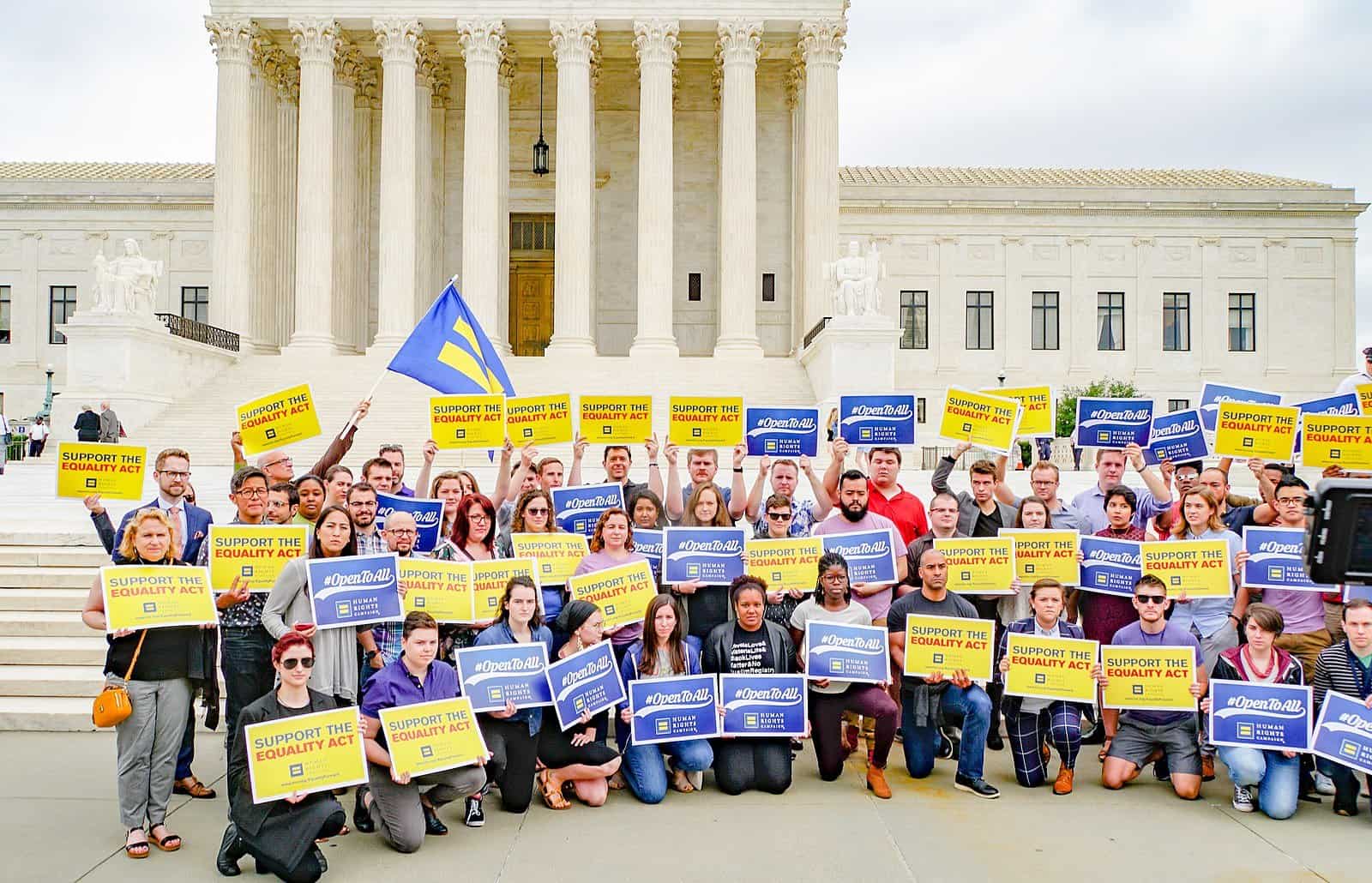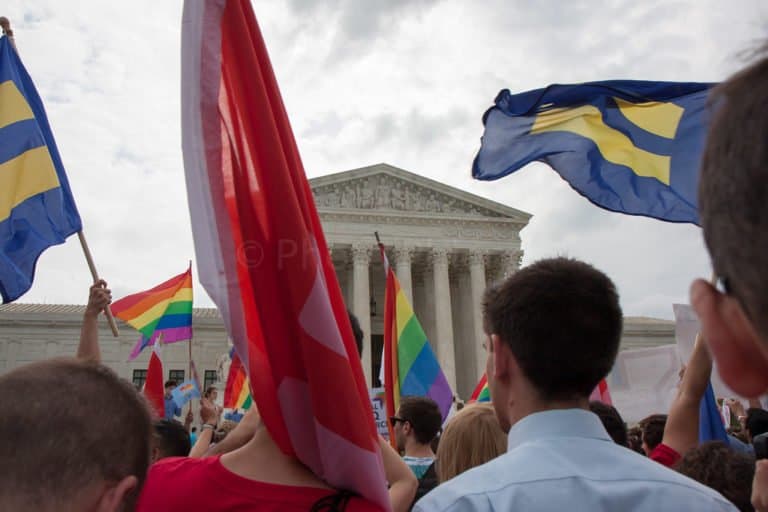This morning, the Supreme Court granted cert. in three cases asking whether Title VII of the Civil Rights Act’s prohibition on workplace discrimination based on sex also prohibits discrimination against LGBTQ workers.
The Court granted cert. in Harris Funeral Homes v. EEOC, a ground-breaking case holding that Title VII prohibits discrimination against transgender workers, and two cases, Bostock v. Clayton County, Georgia, and Altitude Express v. Zarda, about whether Title VII prohibits discrimination on the basis of sexual orientation. In Zarda, the Second Circuit held that Title VII bars sexual orientation discrimination because such discrimination is “a subset of sex discrimination,” but in Bostock, the 11th Circuit upheld a lower court holding that Title VII does not apply to discrimination based on sexual orientation. Zarda and Bostock created a circuit split that the Supreme Court is now likely to resolve. Many federal appeals courts have held that Title VII protects LGBTQ workers — but with Justice Kennedy off the Court and Justice Kavanaugh on, the future of those rights is not clear.
OnLabor will provide extensive coverage of the cases between now and decision day. Adrienne and Ben recently made an important point to keep in mind as we digest the cert. grants:
If the Court . . . follows the lead of New Prime, there may be reason to worry. The New Prime question, after all, would be what the term “sex” meant in 1964, when Title VII was passed. And the answer to that question would be derived from dictionaries and cases written at that time. The risk is that the Court would find that “sex” in 1964 did not encompass either sexual orientation or gender identity. It might then conclude that because “sex” in 1964 did not encompass sexual orientation or gender identity, discrimination on the basis of those characteristics today is not discrimination “because of sex.
This would be disastrous for equal rights at work. But it also would be a mistake, even under New Prime. First, As the EEOC and numerous courts of appeals have recognized (and as Katie R. Eyer outlines in a recent article), “because of” includes the idea of “but for” causation. And most cases of discrimination against a person because of their sexual orientation or gender identity would not have occurred but for their sex, even on a 1964 definition of sex. For example, a gay man who is fired for being in a relationship with another man was fired because of his sex. If he were a woman in a relationship with a man, he would not have been fired. He would not have faced discrimination but for his sex, even on a 1964 definition. Similarly, an employee assigned the sex of male at birth and who faces discrimination for identifying as female today would not have faced discrimination but for her sex, even on a 1964 definition. Had she been assigned the sex of female at birth there would be no adverse treatment.
To understand what’s at risk, check out some of OnLabor’s previous coverage of Title VII and LGBTQ rights:
- Adrienne Spiegel sums up today’s cert. grants here.
- Alexa Kissinger sums up the 11th Circuit’s en banc decision holding that discrimination based on sexual orientation violates Title VII in Zarda and the Sixth Circuit’s decision in Harris holding that Title VII bans anti-transgender discrimination.
- Benjamin Sachs and Adrienne Spiegel sound the alarm about Justice Gorsuch’s opinion in New Prime v. Oliveira, which might include a poison pill for LGBTQ rights.
- Lauren Godles rounds up the state of LGBTQ discrimination protections in the workplace (as of 2016), pointing out that half of American states do not explicitly protect LGBTQ workers from discrimination.
- Adrienne Spiegel sums up oral arguments in an Eighth Circuit case argued this month about whether Title VII prohibits sexual orientation discrimination.









Daily News & Commentary
Start your day with our roundup of the latest labor developments. See all
April 19
Alabama and Louisiana advance anti-worker legislation; Mercedes workers in Alabama set election date; VW Chattanooga election concludes today.
April 18
Disneyland performers file petition for unionization and union elections begin at Volkswagen plant in Tennessee.
April 18
In today’s Tech@Work, a regulation-of-algorithms-in-hiring blitz: Mass. AG issues advisory clarifying how state laws apply to AI decisionmaking tools; and British union TUC launches campaign for new law to regulate the use of AI at work.
April 17
Southern governors oppose UAW organizing in their states; Florida bans local heat protections for workers; Google employees occupy company offices to protest contracts with the Israeli government
April 16
EEOC publishes final regulation implementing the Pregnant Workers Fairness Act, Volkswagen workers in Tennessee gear up for a union election, and the First Circuit revives the Whole Foods case over BLM masks.
April 15
The Supreme Court ruled in favor of bakery delivery drivers in an exemption from mandatory arbitration case; A Teamsters Local ends its 18-month strike by accepting settlement payments and agreeing to dissolve